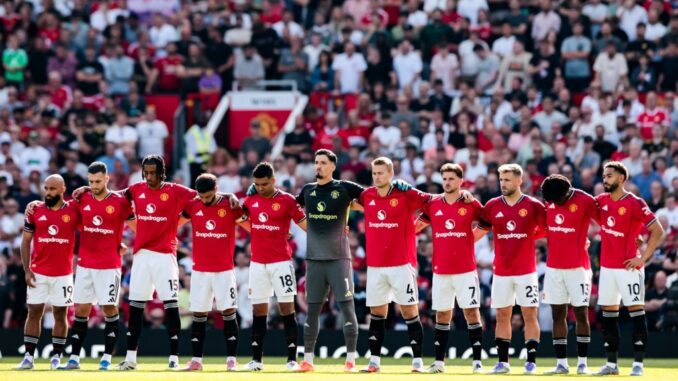
The Jekyll and Hyde Syndrome: Taming Giants, Tripping Over Minnows
Manchester United has perfected the art of the dramatic paradox. They are the Premier League’s most unpredictable powerhouse, a team capable of the sublime high of an emphatic victory over a title rival, only to be followed immediately by the soul-crushing low of a flat, embarrassing defeat to a struggling mid-table or relegation-threatened side.
The problem at Old Trafford is no longer the capacity to win big games—they have repeatedly proven they can execute a perfect tactical game plan against the likes of Liverpool and Arsenal. The real crisis is the “Old Trafford Hangover”—the psychological and tactical inability to maintain that elite intensity when the spotlight dims and the pressure shifts from the counter-punch to the complex challenge of sustained dominance.
The Tactical Trap of the Counter-Punch
Under their new managerial setup, United has often found a blueprint for success against top teams: sit deep, defend with structure and venom, and then unleash rapid, devastating counter-attacks that utilise the pace of their forwards. This strategy is reactive, simple, and highly effective against sides that commit men forward and dominate possession.
However, this successful blueprint becomes a deadly tactical trap against lesser opponents. When United face a team that sits in a deep, organised low-block—the dreaded ‘parked bus’—the onus shifts entirely to the Red Devils to break them down.
The Problem of Possession: United’s squad, a mosaic of expensive signings brought in by different managers, lacks the creative coherence, precision passing, and sustained patience to systematically dismantle a compact defence. The transition is too slow, the movement off the ball is static, and world-class attackers often look isolated and lost.
The Energy Drain: The intense, hyper-focused effort required to beat a top-four team leaves the squad mentally and physically exhausted. Players struggle to reproduce the same level of white-hot urgency against, for instance, a newly-promoted club, often exhibiting a worrying drop in commitment and concentration.
The Mental Fragility: Victory’s False Sense of Security
After a monumental win, the dressing room narrative often revolves around the idea that “the corner has been turned” or that “the real United has arrived.” This rush of confidence, however, seems to breed complacency rather than consistency.
The players appear to subconsciously believe that their mere presence and pedigree will be enough to brush aside a smaller team, resulting in slow starts, missed chances, and an alarming tendency to concede the first goal. This psychological drop-off has become a predictable pattern that opposition coaches are now expertly exploiting.
“We saw the Manchester United that beat Liverpool, but we are not seeing the Manchester United that can beat the rest of the league,” noted a prominent former club legend on a recent broadcast. “The consistency of effort is missing. It’s the ultimate professional challenge: performing at the same world-class level whether you are playing Real Madrid or Rochdale.”
Until the club can instil a robust, versatile tactical identity that functions just as effectively in possession against a low-block as it does on the counter-attack, and until the players master the mental discipline to treat every league game as a cup final, the painful cycle of brilliant victory followed by embarrassing defeat will remain the true, defining crisis of the modern Manchester United era. The question is not if they can win a big game, but what happens next.
Leave a Reply